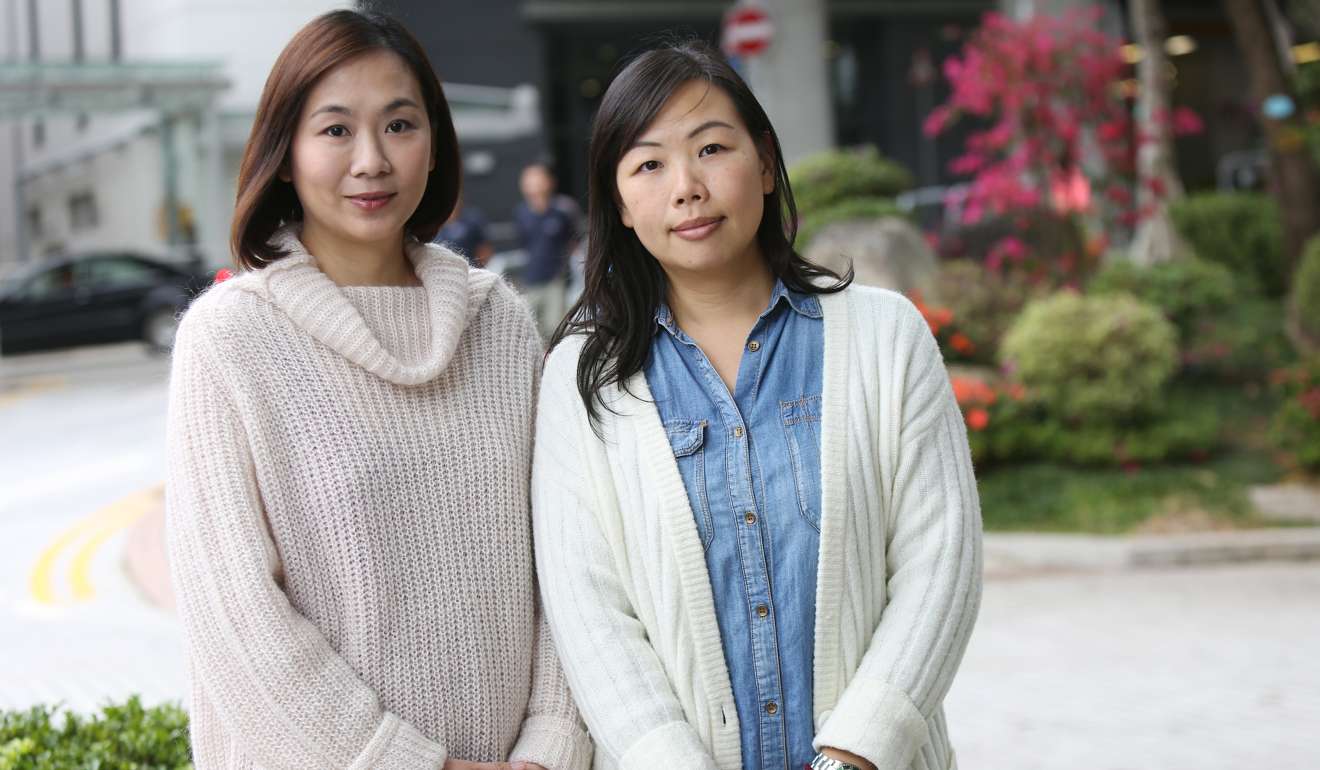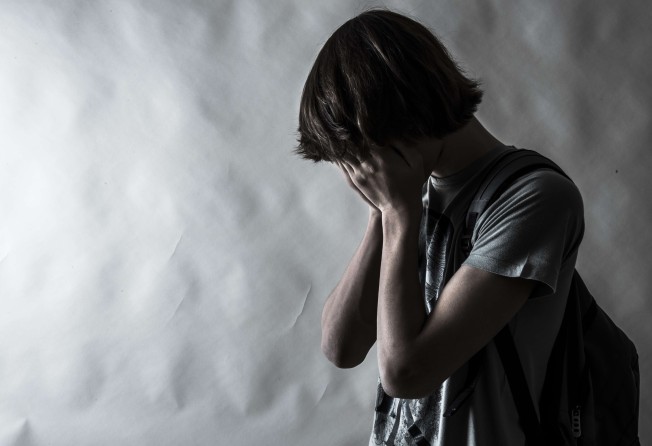
Stop, listen and put overstressed Hong Kong pupils first, help group pleads
The two mothers who set up Love Our Kids say it’s time everyone took notice of the school pressure that’s driving young people to despair

“Can you stop and listen to our voices? Are tests and evaluations more important than our lives?”
This was part of the plea from Love Our Kids (LOK) as part of its youth suicide prevention efforts to help tackle the increasing pressure of Hong Kong’s education system following seven student suicides in the city last month.
LOK was co-founded last April by Annie Cheung Yim-shuen and Rachel Tong Chung-yee, both mothers of children who struggled with the rigours of the city’s school system, which has long been criticised for putting unbearable stress on students.

They’ve so far been invited to five schools to run tailor-made programmes with activities such as pottery, expressive art therapy, dance, writing and conversation.
“For the kids, at that moment, their minds are at peace,” Cheung said.
Students often ask programme facilitators not to leave, she said, and at one secondary school, a concert they organised even reduced some students to tears.
“A lot of them cried,” Cheung said quietly. “Every time I went to the school to do this kind of exercise for them, I can feel their sadness. Even now, talking about it, I can feel their pressure.”
The group will visit two additional schools in June and July, but say a lack of funding and limited free time at the schools makes it difficult to do more.
Cheung’s nine-year-old daughter, Chan Yu-ling, spoke earlier this year at a Legislative Council meeting addressing student suicides, describing her primary school as a “prison” where she and her classmates would cry over their test results.
“I didn’t have enough time to sleep, let alone play,” she told lawmakers. “I was so scared of dictations, exams and tests.”
But after Cheung transferred her daughter to an English Schools Foundation school she is “much happier” and no longer experiences nausea and even vomiting when preparing for exams.
Tong’s nine-year-old son, Wong Long-fun, also spoke at the Legco session, asking education minister Eddie Ng Hak-kim: “Do you know we are having a hard time? Could the education system be changed?”
“This is a big problem for all the kids, not just my kid,” Tong said.
Hong Kong’s school system focuses only on academic performance, where getting into university is the only thing that matters, according to LOK director Connie Liu Kar-wai, a senior lecturer at Hang Seng Management College.
“And it’s not just the education system, it’s the entire society,” she said. “It’s so ingrained, so obsessed with the idea of going to university that everything has to be geared towards it.”
Liu said some of her college students were told by teachers that they were useless if they didn’t go to university. When she told them to believe in themselves, a few began to cry.
“Someone believed in them, and they started weeping,” Liu said. “This is the education system we are in now and this is getting worse, it’s not getting better.”
A government-commissioned report recently concluded there was no link between the city’s education system and the 71 student suicides between 2013 and 2016.
“The cause [of student suicides] is indeed multi-factoral,” social sciences professor Paul Yip Siu-fai, chair of the government committee on this issue, said. “People are saying our education system doesn’t work, which is true. There is still much more room for improvement.”
While LOK’s co-founders cannot overhaul what they see as a faulty education system, they hope to encourage more students to express their emotions, and to raise awareness of the city’s endemic problem of high academic pressure.
“If enough parents believe the source of the problem is the system, then we can put pressure on the government,” Liu said.
Cheung added: “We want the Hong Kong people to be more aware. Just stop, just listen to what the kids are saying ... Just treat them as a normal person, treat them as people.”
If you are feeling stressed or in need of support, contact Samaritan Befrienders’ 24-hour hotline on 2389 2222.
Pushed over the edge – why do young people take their lives?
Suicide is one of the major causes of death among young people in Hong Kong and is a complex issue caused by multiple factors, a recent government report found.
Many blame student suicides on the city’s school system, which is too results-oriented and driven by academic performance, according to Paul Yip Siu-fai, director of the Centre for Suicide Research and Prevention at the University of Hong Kong.
“It is important for our schools ... to give more space for our students,” he said.
But focusing on the academic system as the sole cause of youth suicides “simplifies the situation”, even creating a sense of helplessness for students who feel there is little they can do to change the system, Yip said.
“In order to reduce the suicide rate, we need to see the situation holistically. A student will not die from single causes.”
A government committee set up last year to address the 71 student suicides between 2013 and 2016 found around 80 per cent of students who took their own lives suffered from some type of relationship problem with family or friends.
Schools should implement early warning systems so people can be on the alert for signs of high anxiety or pressure among students, such as negative social media posts or flagging interest in school, Yip said.
In addition, schools should provide workforce training for students who may be unable to get into the city’s universities.